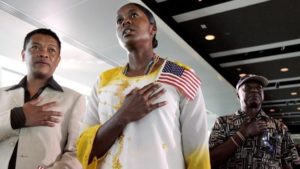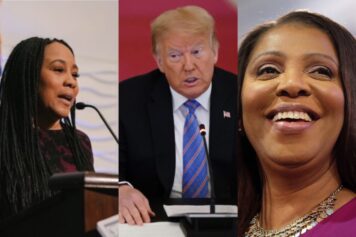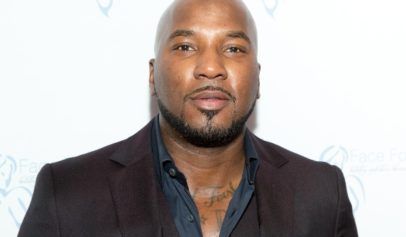
There are an estimated 565,000 Black undocumented immigrants living in the U.S. (Image courtesy of The Black Institute)
To the dismay of many, President Donald Trump this week chose to ax the federal program known as DACA, leaving thousands of young, undocumented immigrants in legal peril and at risk of being deported to their native countries.
The announcement has since dropped a cloud of fear and uncertainty onto the heads of those protected by DACA, including Black undocumented immigrants like Jonathan Jayes–Green, 25. The program, created by the Obama administration in 2012, has allowed Jayes-Green and over 800,000 “dreamers” like him to remain in the U.S. after they were brought here illegally as children.
Though Trump has vowed to phase out the program, he’s given Congress six months to come up with a fix to save it. That’s not been much consolation to the Afro-Panamanian man who’s been under DACA protection since he was just 13 years old.
“They sent a very clear message that it is okay for them to use [undocumented immigrant] bodies as property and nothing more,” Jayes-Green told NBC News. “Our fear is that this is a set-up.
“They rescinded the program which means they want something else,” he continued. “The administration is pushing Congress to put this right legislatively, but they want to use us as bargaining chips, offer us as inducements for the border wall.”
Latinos are primarily portrayed in the media as the faces of the undocumented immigrant community, but Jayes-Green, co-founder of the UndocuBlack Network, and comrades like Opal Tometi, executive director of the Black Alliance for Just Immigration, are working to shine a light on challenges faced by Black DACA recipients.
According to a report by BAJI and New York University, there are an estimated 3.7 million Black immigrants from Africa, the Caribbean, Central and South America and Asia residing in the U.S., comprising 10 percent of the nation’s Black population. Of those immigrants, 565,000 are reported to be undocumented.
Black immigrants are less likely to be in the U.S. unlawfully, however, when compared to the overall share of undocumented immigrants. For instance, just 16 percent of Black immigrants from the Caribbean are undocumented, as are 13 percent of immigrants from Africa, the report showed. Still, Black immigrants frequently face both racial and social injustices.
“We know that Black immigrants have traditionally borne the brunt of their circumstances,” Jayes-Green said. “They are three times more likely to be deported and much more likely to be caught up in the criminal justice system because of their color. However, we have an inexplicable resilience and resistance. We have to hold onto our values and beliefs. We are freedom fighters and understand that our ancestors are with us. Historically, they overcame the odds and we will, too.”
News of DACA’s reversal, announced by Attorney General Jeff Sessions on Tuesday, Sept. 5, sparked protests across the nation. Students in Denver, Colo., staged a walk-out while a crowd of demonstrators shouted “Shame on Trump!” while marching outside the Trump International Hotel in Washington, D.C., NBC News reported.
For Tometi, the president’s decision to end the program was yet another example of him “pandering to white supremacists over immigrant, Black and poor communities, as well as millions of organizations, businesses and allies that support DACA recipients.”
The shocking announcement even warranted a response from former President Barack Obama, who called the move “cruel.”
“To target these young people is wrong ― because they have done nothing wrong,” Obama said in a statement. “And it’s cruel. This is about whether we are a people who kick hopeful young strivers out of America, or whether we treat them the way we’d want our own kids to be treated.
“It’s about who we are as a people ― and who we want to be.”
The ball is now in Congress’ court to come up with a solution.


